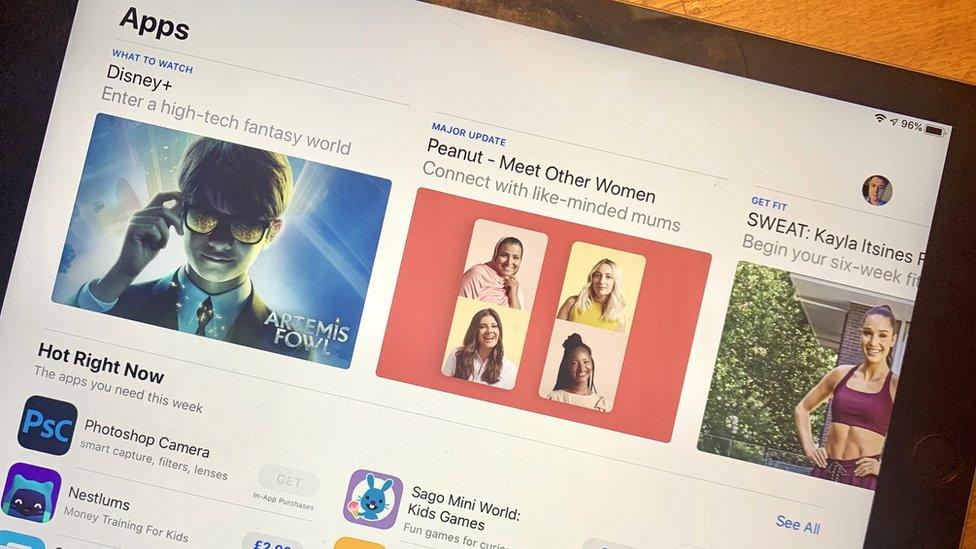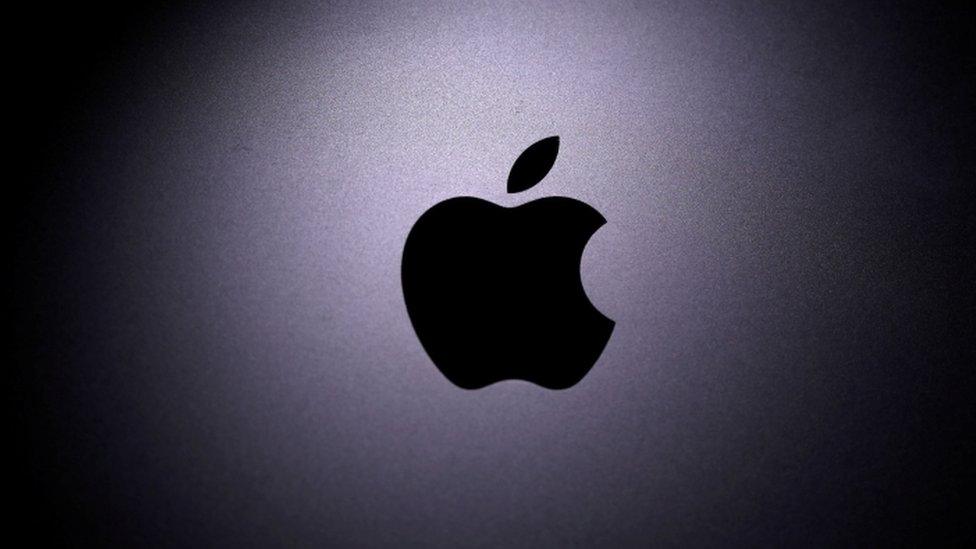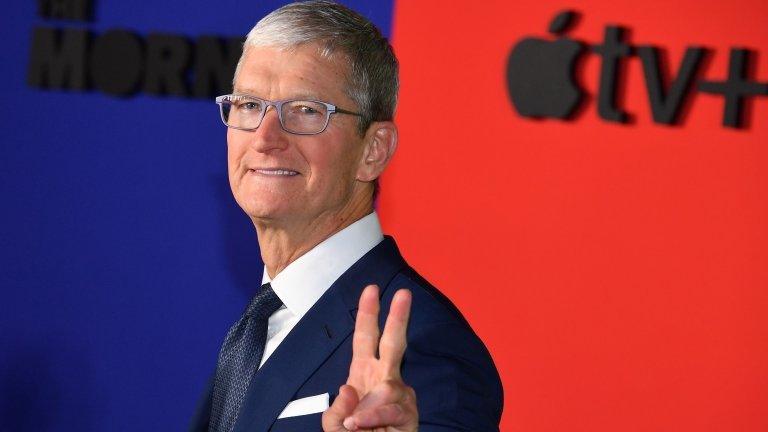Tech Tent: Apple's App Store battle
- Published

iOS apps cannot inform users that it may be cheaper to buy digital content from an external website
On this week's Tech Tent, the battle between Apple and its developers over the commission it charges to use its App Store.
The tech giant says everyone's a winner from its hugely lucrative store which generated $0.5bn (£0.4bn) in revenue last year, benefitting all those developers who created millions of apps.
But in the week the EU mounted an investigation into whether Apple was abusing its position by charging 30% commission on app purchases, we hear from one small developer making a big noise.

David Heinmeier Hansson, chief technology officer of Basecamp, tells us about his firm's dispute with the tech giant over the app for their new subscription email service Hey.
Apple is threatening to remove the app from the store unless it includes an in-app purchase option from which it would take a 30% cut of all revenues.
He says most small developers are afraid to tangle with the company on which their livelihood depends: "When Apple shows up with outrageous demands they keep quiet and they try to resolve it. We're not going to do that. We're not going to keep quiet and we're not going to pay."
Apple is not commenting but is quietly pointing to a clause in its terms and conditions saying developers have to offer in-app purchases.
"Pretty bad"
Also on today's programme, after a week which has seen Germany launch a decentralised contact tracing app and the UK government decide to ditch its centralised version we hear that the technology for either approach might not be fit for purpose.
Contact tracing apps use Bluetooth to measure the distance between people and Professor Stephen Farrell and Professor Doug Leith of Trinity College Dublin have been testing its accuracy.
So how does it do?
"It's pretty bad, that's the bottom line," says Professor Farrell.
In tests on a bus, for instance, they found that someone 4m (13 ft) away sometimes appeared closer than a person 2m away.
That kind of reading could see someone sent into quarantine without a good reason while another person who might need to be self-isolating would not get an alert.
Countries around the world have been trying this high tech approach to contact tracing - but it could all turn out to have been a pipe dream.
- Published16 June 2020

- Published17 June 2020

